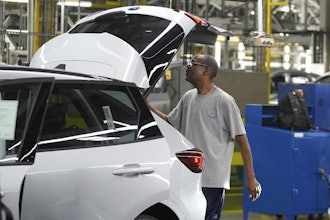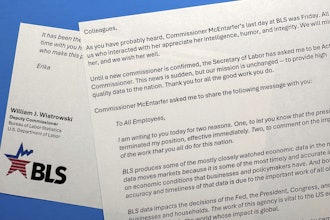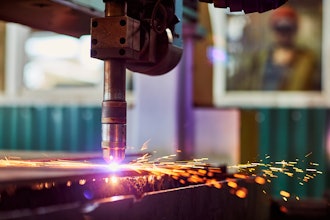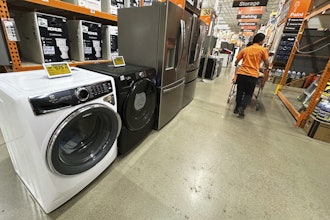It seems that more and more manufacturing jobs are coming back into the U.S.
A study by the Reshoring Initiative shows that 60,000 manufacturing jobs were brought into the U.S. by a combination of reshoring and foreign direct investment (FDI) in 2014, a record level and 400 percent increase since 2003.
The report says that government incentives, the skilled workforce, and the value of a “Made in America” label are the main reasons as to why manufacturing jobs are returning to the U.S. And the Reshoring Initiative also says the prospects are promising that more jobs will be coming back.
The Reshoring initiative was founded five years ago as in industry-led effort to bring back manufacturers and workers from companies that had offshored back to the United States.
“We publish this data annually to show companies that the trend in manufacturing in the United States is to source domestically,” said Harry Moser, president of the Reshoring Initiative. “With 3 to 4 million manufacturing jobs still off shore, we see huge potential for even more growth and hope this data will motivate more companies to reevaluate their sourcing and siting decisions.”
The group estimates that anywhere from 30,000 to 50,000 jobs were offshored last year, a sharp drop off compared to the 150,000 jobs that went offshoring a decade ago.
More than 50 percent of reshoring has come from China.
This is consistent with the huge percentage of offshoring that went to China during 2000-2010. Some industry observers said that China would become the largest manufacturer in the world and would prove to be “indomitable.”
The report also says jobs were brought back from Canada and suggests that may be due to a recent period of high currency value.
Europe is disproportionately low, probably, according to the report. It said this might be due to more U.S. companies producing in-house there as opposed to outsourcing to Asia, less rapid wage gains, low IP risk, and higher quality.
Mexico has been the destination for a lot of nearshoring but is also the #2 source of reshoring, primarily in the automotive and appliance areas.
The report says the largest reshoring projects tend to go into the Southeast and Texas. The Midwest is second because of its strong industrial base.
Some American companies are cheering the results of the report.
In fact, the growth of the “Made in America” label has been getting stronger among buyers, according to Mark Kahn, the founder of Kahn Tools in Woodland Hills, California, an online distributor that exclusively represents manufacturers of American-made industrial products.
Less than two years ago, Kahn launched his company which now represents 400 manufacturers, all of whom fill the orders and provide the logistics services. Every item in the Kahn Tools catalog, he says, was “made here in America-never overseas.
“Originally we thought we’d be selling to small companies in towns where manufacturers might have closed operations, places where buyers knew someone directly who had lost their jobs because companies moved operations to places like China,” he explains. “Some of these jobs will never be coming back. We have to protect jobs that are still here. We should remember that buying products made in China may end up not being the cheapest in the long run.”
Kahn points out that wages in China, Asia, and in other foreign countries have been rising, creating an opportunity for American manufacturers.
He says some of the largest companies in the country are now ordering products from Kahn Tools. “But it isn’t just here in the U.S.,” he says. “We’re getting requests for products made here from countries such as Switzerland, Japan, many Far East countries, Australia and, yes, even China who want to buy American-made products to help run their manufacturing plants. They know the quality of U.S. made products.”
This is not Mark Kahn’s entry into the industrial business. He was president of his family-owned industrial supply company Production Tool Supply, one of the largest distributors in the U.S. He sold the business and retired ten years ago, devoting his time and money to a number of philanthropic causes but still missed the industrial business.
“We started this business from scratch and our growth has been phenomenal,” he says. Running a successful business combined with his continuing charitable work makes going to work every day challenging but rewarding, he adds.
Each month, Kahn donates a portion of his sales to a charity. In May that group was “Rags of Honor,” which is a “custom silk screen and apparel company devoted to hiring homeless and chronically unemployed veterans.”






















